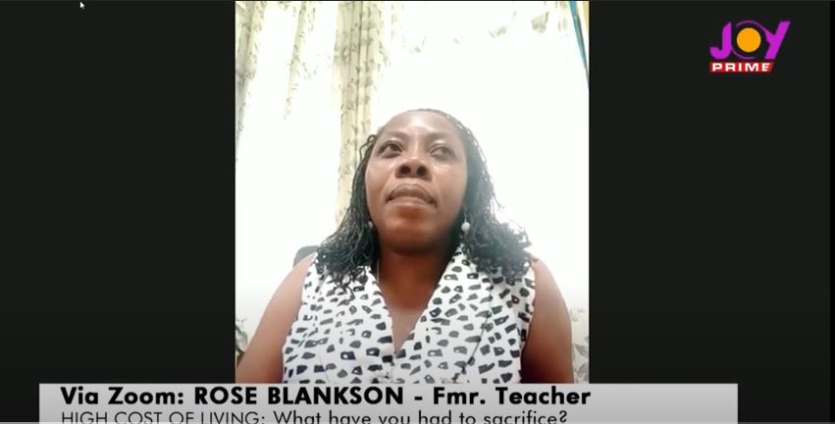
Audio By Carbonatix
All second-cycle institutions across the country have started using a new curriculum developed by the Ministry of Education and its partners.
However, there are growing concerns among stakeholders about the implementation of the curriculum, with questions being raised regarding its credibility and sustainability.
Assessing the new curriculum on Joy News AM Show on Tuesday, November 5, 2024, the Assistant Registrar at the University of Cape Coast, Rose Blankson, speaking from a parent's perspective, said the initiators of the curriculum have not done enough public education on the policy before its implementation.
She argued that parents are not fully aware of how the new curriculum works, and that this lack of understanding will inevitably affect their children's academic journey.
“There hasn’t been much engagement. It's been the teachers – yes, the teachers have been trained, and they have to be trained – but parents also need to guide their children when they come home. They’ll come home with homework, and parents have to be involved. The community also needs to be involved. How much engagement has there been about the curriculum?” she asked.
She further expressed frustration, saying, “I really don’t know much about this new curriculum and what it involves,” adding that the government has, over the years, implemented many “beautiful” policies but has failed to engage the public before rolling them out.
She suggested that the public needs to know more about the curriculum, and therefore, the relevant authorities should consider creating awareness through mass media and other communication channels.
According to the National Council for Curriculum and Assessment (NaCCA), the new educational curriculum for secondary schools was introduced with the aim of improving and modernising the country’s education system to better equip students for the challenges of the 21st century.
Some features of the new secondary education curriculum, which includes changes to Senior High Schools (SHS), Senior High Technical Schools (SHTS), and Science, Technology, Engineering, and Mathematics (STEM) institutions, include a focus on STEM and technical education, flexibility in subject selection, remedial support, and diagnostic assessments.
The new curriculum is also designed to provide personal learning pathways, enhance practical learning skills, and promote digital literacy.
This version adjusts spelling (e.g. "programme" instead of "program" in UK English), grammatical errors, and clarifies some points for a smoother flow of the narrative.
Latest Stories
-
Strategic Development or Regional Appeasement? A reflection on Ghana’s airport policy
4 minutes -
Israel launches attack against Iran
2 hours -
‘He was my dorm mate’: Former Dep. GES Director settles debate over Chairman Wontumi’s Prempeh College credentials
2 hours -
Mob fury at Kasoa: Firefighters stoned as market inferno reduces shops to ashes
2 hours -
January allowances cleared: National Service Authority pays personnel across Ghana
3 hours -
MTN Ghana rings in massive GH¢7.8 bn profit as digital and fintech revenues surge
3 hours -
Government extends ‘Nkoko Nkitinkiti’ broiler initiative to schools
3 hours -
Farmer drags gov’t to Supreme Court over ‘extortionate fees’ and ‘restrictive licensing’ for industrial cannabis
3 hours -
Eastern Region: 38 suspects, including teenagers, arrested in galamsey raid
4 hours -
NDC predicts crushing defeat for party member now an independent candidate in Ayawaso East by-election
4 hours -
President Mahama rallies Black Stars and fans for 2026 World Cup glory
5 hours -
No bed syndrome “unacceptable” – Mahama warns hospitals after engineer’s tragic death
5 hours -
Photos: State of the Nation Address
6 hours -
Trump ‘not thrilled’ with Iran after latest talks on nuclear programme
6 hours -
Paramount set for $111bn Warner Bros takeover after Netflix drops bid
7 hours

